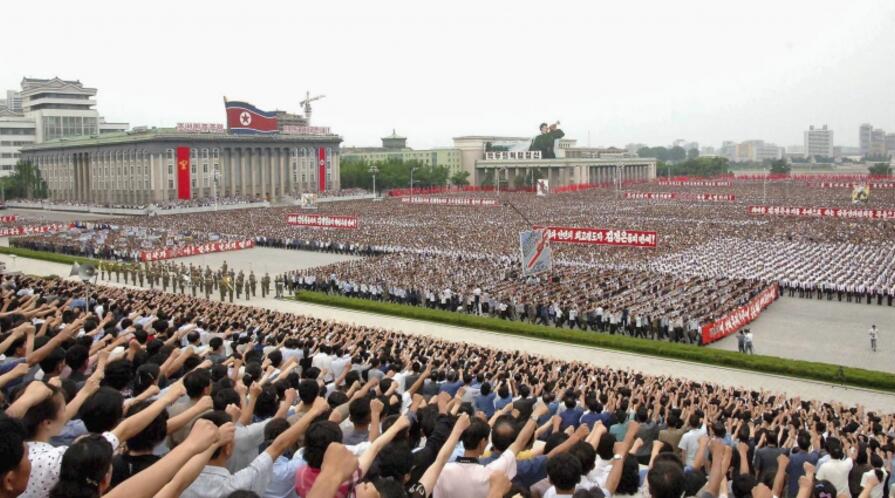PRC-ROK summit underscores shared interests and common concerns

PRC-ROK Summit Underscores Shared Interests and Common Concerns
Stanford, California
South Korean President Park Geun-hye’s visit to China this week attests to the magnitude and importance of geostrategic changes in Northeast Asia. Just a few years ago, such a visit might have been widely interpreted as a sign of tension in the U.S.-ROK relationship and an attempt by Beijing to undermine the alliance. Now it is viewed, correctly, as a natural and necessary meeting between leaders with many shared interests and common concerns, above all about the behavior and intentions of the DPRK.
When Presidents Park and Xi Jinping meet, each will have met recently with President Obama. Neither will have met with Kim Jong Un since assuming their current positions. The symbolism of this difference reflects the reality that Park, Xi, and Obama have far more shared interests than any of them has with Kim or his regime. Indeed, key objectives of all three summits include strengthening bilateral ties and preserving peace in the world’s most dynamic region.
Much of the Park-Xi agenda will be devoted to economic and trade issues and opportunities, and to other bilateral and global challenges. But both leaders recognize that North Korean actions pose the greatest threat to regional peace and the continued prosperity of their own nations. Their discussions should, and will, devote much time and attention to what each can do, individually, jointly, and with the United States, to persuade Pyongyang to change its dangerous and counterproductive behavior.
After testing three nuclear devices, Pyongyang is now openly threatening the United States with a pre-emptive nuclear attack and has engaged in nuclear proliferation with a number of countries. While Pyongyang says its nuclear program is directed only against the United States, many South Koreans believe that the North’s possession of nuclear devices emboldened it to launch two deadly conventional attacks on the South in 2010. What more might Pyongyang do, they fear, if it continues on its current path?
North Korea has developed nuclear weapons and delivery systems because it feels threatened from all sides and judges that, unlike the South, it has no reliable ally. But the real threat to the regime comes from within, not from without. Its misguided policies impoverish its people and prevent the DPRK from following a path of reform and opening to the outside world that has brought stability and prosperity to all of its neighbors, a path that Chinese leaders have urged on Pyongyang for over two decades.
Pyongyang’s leaders seem to have deluded themselves into believing that nuclear weapons will ensure both their security and economic prosperity—even though neither Washington nor Seoul had or has any intention to attack the North, and Pyongyang has long had the functional equivalent of weapons of mass destruction in its thousands of artillery tubes pointed at Seoul. They mistakenly think that Washington will eventually tire of resisting and accept the North as a nuclear weapons state, but no American president will establish diplomatic relations and support removing sanctions on North Korea until it verifiably abandons nuclear weapons.
In recent weeks, North Korea has called for bilateral talks with both the United States and South Korea. While it characterized those offers as "unconditional," its own statements made it clear that it regards any talks as being premised on its being and remaining a nuclear weapons state, a condition it knows neither Washington nor Seoul can accept.
Before Pyongyang moves farther down a path that threatens peace and security while, ironically, achieving none of its own goals, Park, Xi, Obama, and other regional leaders must seek to persuade Kim to discard failed policies in favor of proven alternatives. At the same time, they must find ways to contain the danger his regime will pose to the region and global nonproliferation efforts until he has an epiphany.
President Park said this week that the upcoming Korea-China summit “comes at a more important juncture than at any other time in terms of the situation on the Korean Peninsula.” Without question, President Park’s summit in Beijing could well be one of the most consequential global diplomatic events of the year.
Thomas Fingar served as the U.S. deputy director of national intelligence for analysis and chairman of the National Intelligence Council; Gi-Wook Shin is director of Stanford University’s Shorenstein Asia-Pacific Research Center; and David Straub is a former director of Korean affairs at the U.S. State Department.
